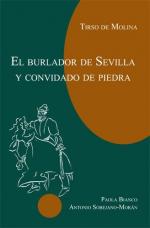|
This section contains 4,382 words (approx. 15 pages at 300 words per page) |

|
SOURCE: Allain, Mathé. “El burlador Burlado: Tirso de Molina's Don Juan.” Modern Language Quarterly XXVII, No. 2 (June 1966): 174-84.
In the following essay, Allain argues that El burlador de Sevilla is “a carefully constructed aesthetic whole in which form and content are inextricably united.”
It was Tirso de Molina, a devout Mercenarian priest, who introduced into Western literature the figure of the archlibertine, Don Juan Tenorio. Rakes there had been aplenty since the Satyricon and the Golden Ass, but Tirso gave the libertine a new dimension when he added the defiant invitation to the dead to the traditional stories of sin and retribution. Since 1630, when Tirso's Burlador de Sevilla was first published, Don Juan has been reinterpreted in every period and for every climate; the legend, its origins, and its metamorphoses have been studied until enough scholarship accumulated to justify a specialized bibliography. Yet the later versions—especially those...
|
This section contains 4,382 words (approx. 15 pages at 300 words per page) |

|


